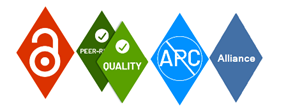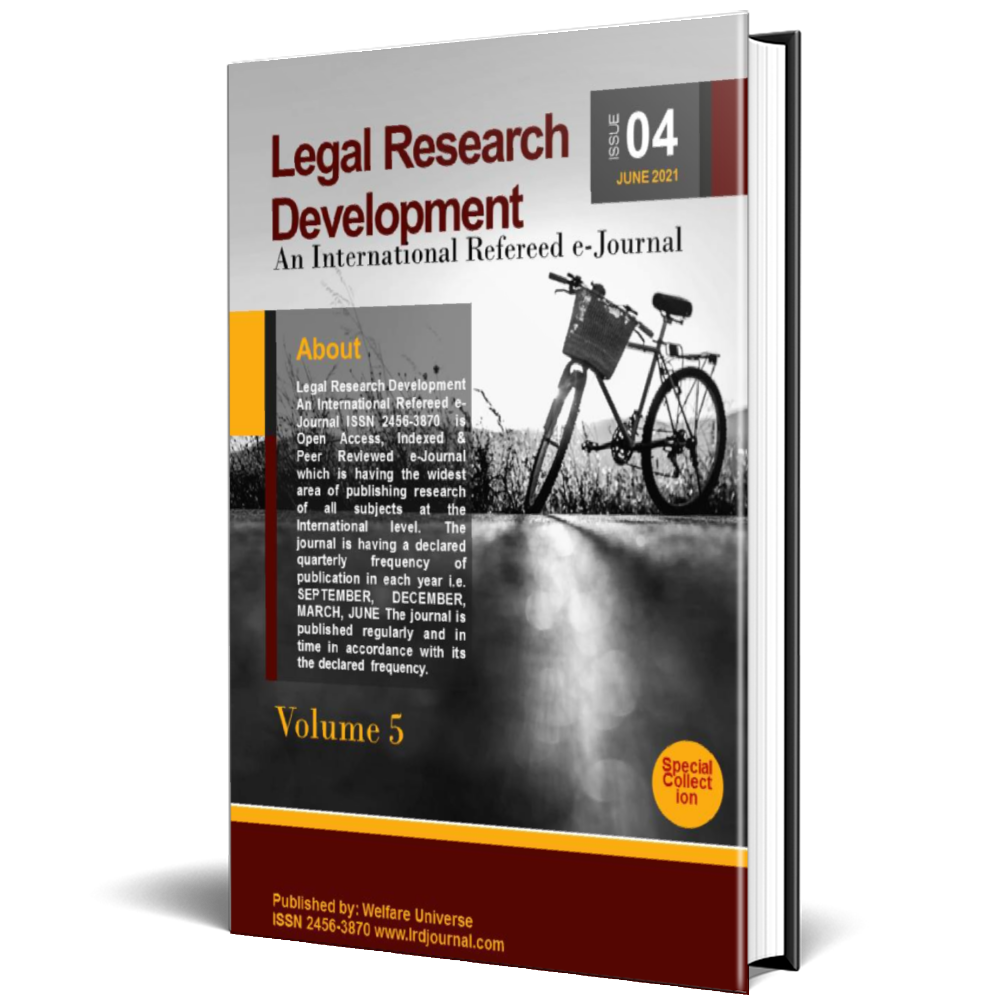RTI As A Machine to Fight Against Corruption and Effective Tool in Indian System
DOI:
https://doi.org/10.53724/lrd/v2n2.02Keywords:
Right to information, Fight Against corruption, Effective Tools, Impact of the societyAbstract
This paper is an examination of the effectiveness of right to information Act 2005, RTI as a machine to fight against corruption and effective tool in Indian system. The RTI act was enforced on 12 October, 2005 to ensure good governance and transparency in India; Good governance has become a buzzword in development today. Fighting corruption, raising, accountability and promoting transparency are increasingly perceived as been indispensable to the nation of good governance the concept of good governance is getting popularity and is being used unsparingly in the international community to promote development, economic and social security and peace. There is realization that robust engagement with the civil society is at the heart of good governance and citizen participation has become a recurring theme because of the inherent impact policies can have on citizens – the ultimate beneficiaries. This research paper examines the different scholarly debates around good governance and did effectiveness. It drams parallels to similar study for good governance since corruption, lack of accountability and transparency have been often cited as impediments to governance.1 The right to information act (RTI) Based on content analysis and depth interviews with a few bureaucrats and activists the paper indicates that RTI act has succeeded in reducing information asymmetries and exposing corruption. Public servants have become relatively accountable and responsible to service.
References
Under section 1(3):Right to Information Act, 2005
Provision made under u/s 4 (1) (d) of the act, makes it mandatory for the public authority to “provide reasons for its administrative or quasi-judicial decisions to the affected persons.”
http://www.humarightsinitiative.org/programs/ai/rti/artical/undprti2006/annex4globalperspectiveon rti.pps (Last seen 25th Oct. 2017)
R Jenkins and AM goetz, “Accounts and Accountability: theoretical implications of the right to information
movement in india,” third world quarterly 20, No. 3 (1999).
Singh’s (2007), India : grassroots initiatives. In A flonini (eds.) the night to know: transparency for on open world, Columbia university press: Newyork.
S sondhi, “combating corruption in India: The role of civil society” (Paper presented at the XVIII world congress of International Political Science Association, Canada, 2000).
N vittal, corrupation in India: The Road block to national prosperity (New Delhi: Academic foundation, 2003).
MM Ansari, “Impact of Right to Information on Development: A perspective on India’s Recent Experiences” (Papar presented at the UNESCO Lecture, Paris, May 15 2008).
A kumar, the Black Economy of India (penguin books, 1999).
CR kumar,“Corruption And Human Right: Promoting Transparency in Governance And The Fundamental Right To Corruption – Free Service In India,” Columbia Journal of Asian law 17 (2003 – 2004).
Ibid.
Transparency International, “corruption perceptions index,” < http:// www. transparency.org /policy – research / surveys – indices / cpi – 2009 – table >.
Kumar, The Black Economy Of India ; D Metha, Tacking Corruption : an Indian perspective, United Nations Asia And Far East Institate Seminar ( japan 2010).
Vittal, corruptions in India: The Road Block to National Prosperity.
Sondhi, “combating corruption in India: the Role of civil society”.
Vittal, corruption in India: The road block to national properity.
Ibid.
Centre for media study transparency International, “Tii – CMS India corruption study 2007 with focus on house holds: National Report” (CMS India transparency international India 2008).
Ibid.
Ibid.
Transparency International India, “India corruption study 2005 to improve Governance”, (New Delhi: centre for media studies, 2005).
Ibid.
Singh, “Aid management India country report”.
Downloads
Published
How to Cite
Issue
Section
License
Copyright (c) 2017 Legal Research Development: An International Refereed e-Journal ISSN: 2456-3870

This work is licensed under a Creative Commons Attribution-NonCommercial 4.0 International License.










